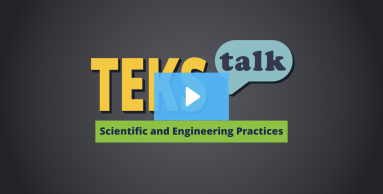- Science
- Grade KG
- Scientific and engineering practices
Back to TEKS search
Science.K.1.F
The student is expected to
record and organize data using pictures, numbers, words, symbols, and simple graphs; and

Knowledge and Skills Statement
Scientific and engineering practices. The student asks questions, identifies problems, and plans and safely conducts classroom, laboratory, and field investigations to answer questions, explain phenomena, or design solutions using appropriate tools and models.
Supporting Information
Research
Spina, Carli. 2017. “Why Kids Need Data Literacy, and How You Can Teach It.” School Library Journal. https://www.slj.com/story/why-kids-need-data-literacy-and-how-you-can-teach-it.
summary: This article explains the importance of students' ability to interpret data displayed in various formats. Data has, in recent years, become more prevalent in everyday life. Visual representation and organizing data are valuable skills for students as they progress through upper-level math and science classes. The article also provides teachers with resources to teach this skill.
